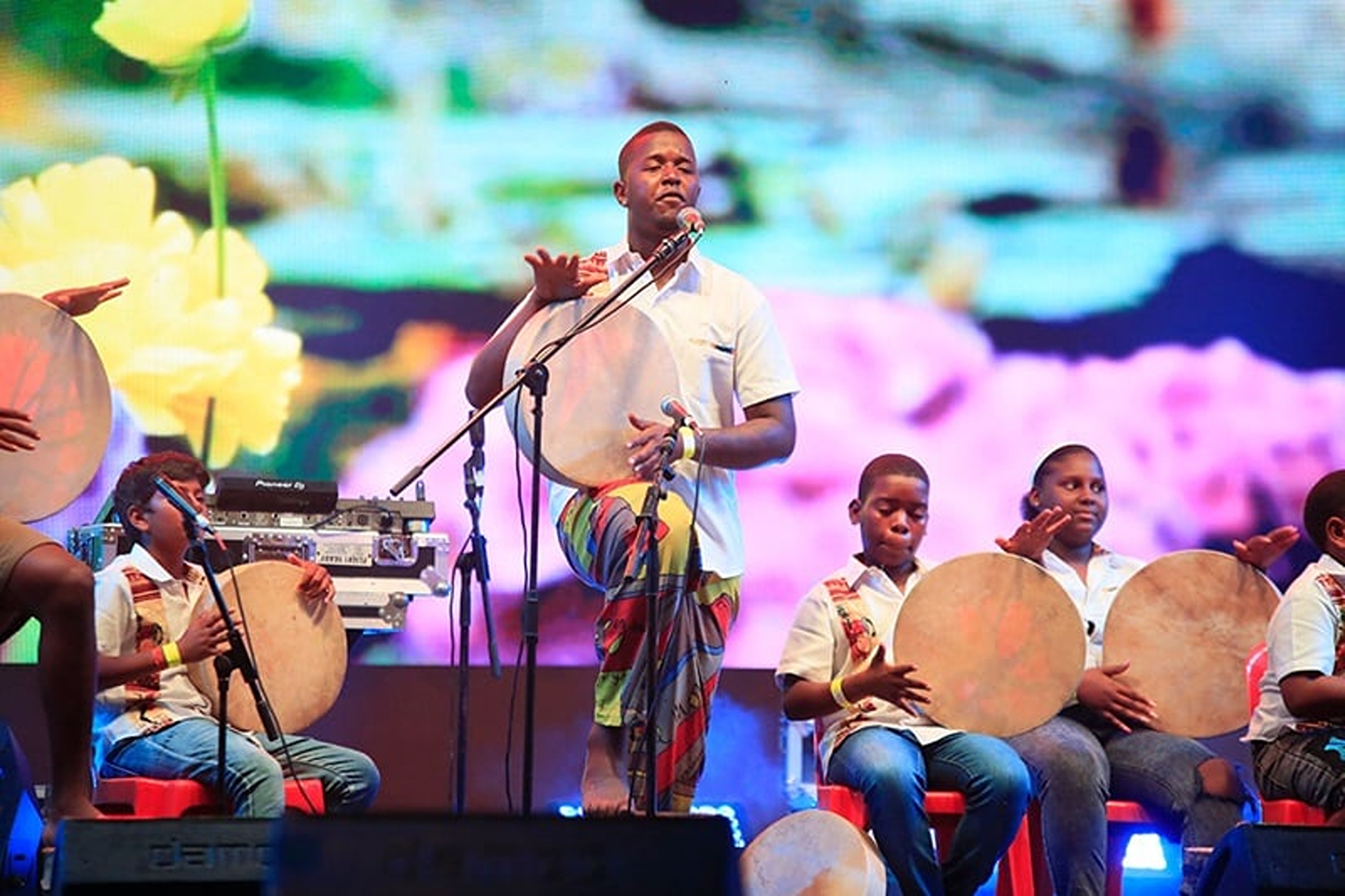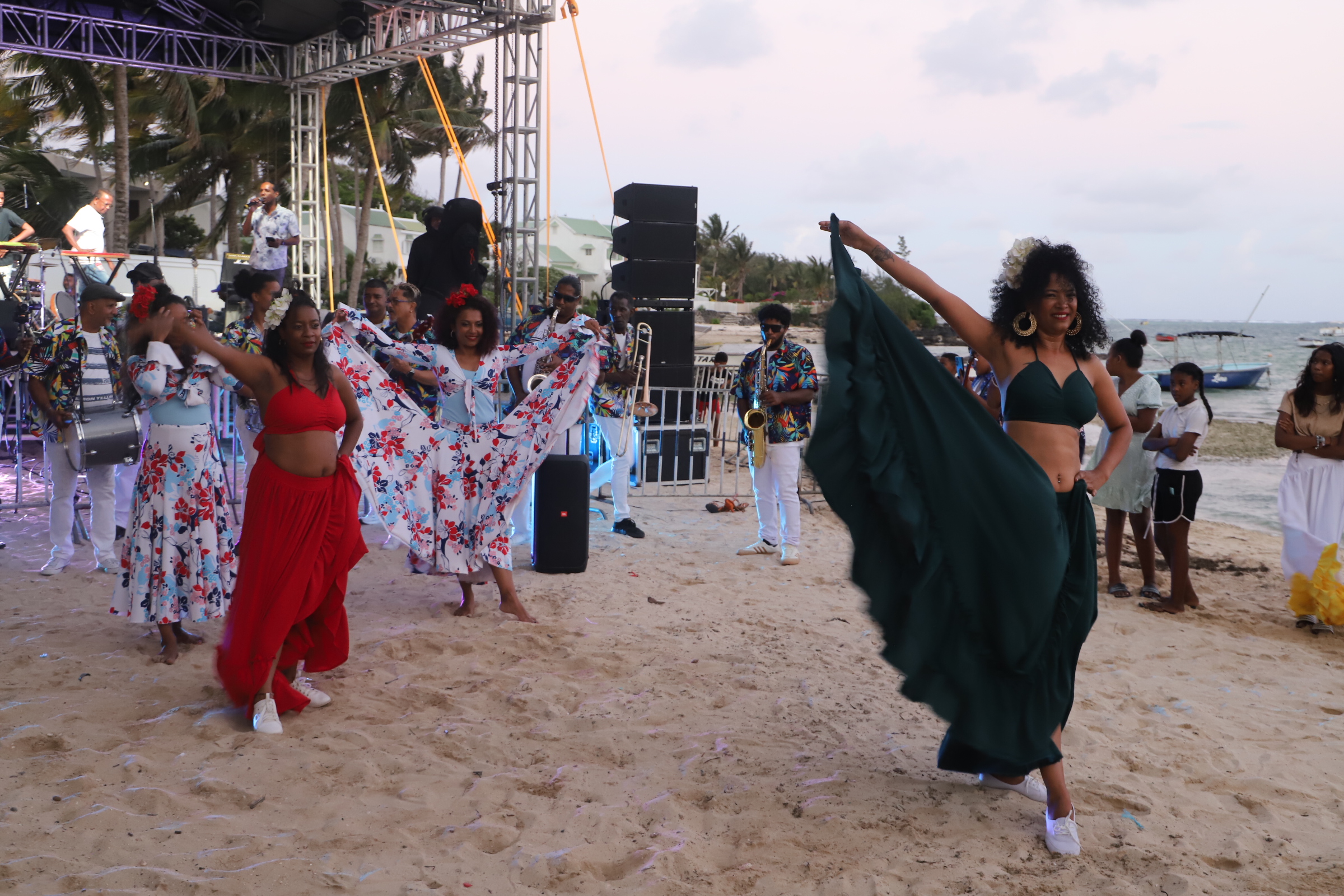In an effort to boost its tourism sector and adapt to shifting global trends, Mauritius has diversified its offerings, emphasising its rich cultural heritage, historical landmarks and luxury golf tourism.
This strategic shift aims to attract a broader range of international travellers and reduce the island's reliance on traditional beach vacations.
Mauritius – with its diverse population comprising Indo-Mauritian, Afro-Mauritian, Sino-Mauritian and Creole communities – boasts a unique cultural blend. This vibrant mix of traditions, languages, festivals and cuisine has become a focal point for the island's tourism marketing.
Last year, Mauritius organised its first international “Créolité: Beauty of our Mauritianism” festival.
Minister of Tourism Richard Duval says this is part of the island’s mission to market itself beyond the beach to international travellers.
“We want this festival to become one of the reasons tourists come to visit us. This national festival is intended to bear witness to the richness of our Creole culture without which Mauritius would not be what it is.
“The festival is the perfect opportunity to show the world our Creole identity and know-how. Créolité is a vast worldwide movement and Mauritius undeniably has its place in it.”
The festival is just the beginning of the tourism ministry’s commitment to showcasing different facets of Mauritius in addition to its beautiful beaches and world-class hotels, Duval says.
Culture, heritage and history
The government of Mauritius has effectively packaged its culture and history by emphasising its multicultural identity, heritage sites and traditional arts, which all attract tourists.
For instance, the government has embarked on various projects like the revitalisation of heritage sites, development of cultural villages and celebration of local festivals illustrating a comprehensive strategy aimed at making culture and history central to the island’s tourism offerings.
The Mauritius Digital Cultural Archive has also been created to digitise the country’s cultural and historical records on slavery, the sugar industry and colonial history – making this information accessible to a global audience.
In addition, the government has taken steps to promote Sega, an indigenous Mauritian music and dance form, as a central part of the cultural identity. Events like Sega Nights showcase this traditional art to international visitors.


The capital city, Port Louis, is also undergoing significant revitalisation with projects focusing on the preservation of colonial-era buildings, improvement of museums and creation of vibrant public spaces like the Caudan Waterfront. This aims to attract tourists who want to experience the modern and colonial aspects of the city.
Key source markets
With its multicultural people a strong selling point, Mauritius continues to attract travellers from key markets including the UK, France and Germany where it is already a popular vacation spot.
There is also a growing interest from China and India with their rising middle class seeking luxury and cultural experiences.
Apart from the beach, Indian and Chinese tourists will find Mauritius an ideal destination to experience a variety of culturally significant festivals. Chinese New Year and the Mid-Autumn Festival celebrate familiar traditions with vibrant cultural displays.
From the bustling streets of China Town to peaceful cultural sites such as Jade Garden and the Chinese Pagoda, the blend of religious, cultural and historical landmarks, alongside modern-day Chinese influence, offer visitors from China an opportunity to connect with their cultural roots while exploring the multicultural identity of Mauritius.
For Indian tourists, Diwali, Holi, Maha Shivaratri, Navaratri, Thai Pongal and Durga Puja are cultural celebrations when travellers can enjoy traditional customs, food and festivities. In addition to the sacred Grand Bassin (Ganga Talao) and the Aapravasi Ghat, which tells the story of Indian indentured labourers, temples are dedicated to Hindu deities. Cultural centres also enhance the rich tapestry of experiences for Indian visitors to connect with their roots.
Visitors from Africa will appreciate the blend of Mauritian history, culture and natural beauty that reflects the island's strong African heritage. From significant historical sites like Aapravasi Ghat and Le Morne Brabant, which commemorate the struggles and resilience of African slaves and indentured labourers, to cultural experiences at museums and cultural centres, Mauritius provides an emotional and educational journey into the history of African migration and influence.
African links
The Pamplemousses Botanic Garden is one of the oldest in the Southern Hemisphere with historical significance, including plants cultivated by African labourers and traders. The Sugar Museum and plantations like Château de Labourdonnais provide insight on the role of African slaves and indentured labourers in the development of the local sugar industry.
The island's vibrant African heritage – symbolised in music, dance, festivals and landmarks – provides African tourists with a deeper connection to their ancestral roots while exploring a unique cultural landscape.
“A lot of people don’t know about this in Mauritius and Africa is a big market,” says Duval. “I’m looking forward to having more Africans visit Mauritius and experience more than the beach. It’s important that international travellers know about Mauritius: what we eat and drink, how we dance and the way we talk. We don’t have any gold or diamonds but we have that important sense of hospitality we are aiming to market internationally.”
Middle East market growing
Considering the Middle East as a tourism market, increasing numbers of high-net-worth individuals from the United Arab Emirates and other Gulf nations are attracted by luxury offerings like golf. Mauritius has made significant investments in luxury golf tourism, positioning itself as a premier destination for enthusiasts.
The island now features several world-class golf courses, within stunning landscapes, attracting affluent visitors from Europe, Asia and beyond. Tournaments like the Mauritius Open, held annually, have further solidified the island’s reputation as a top golf destination.























